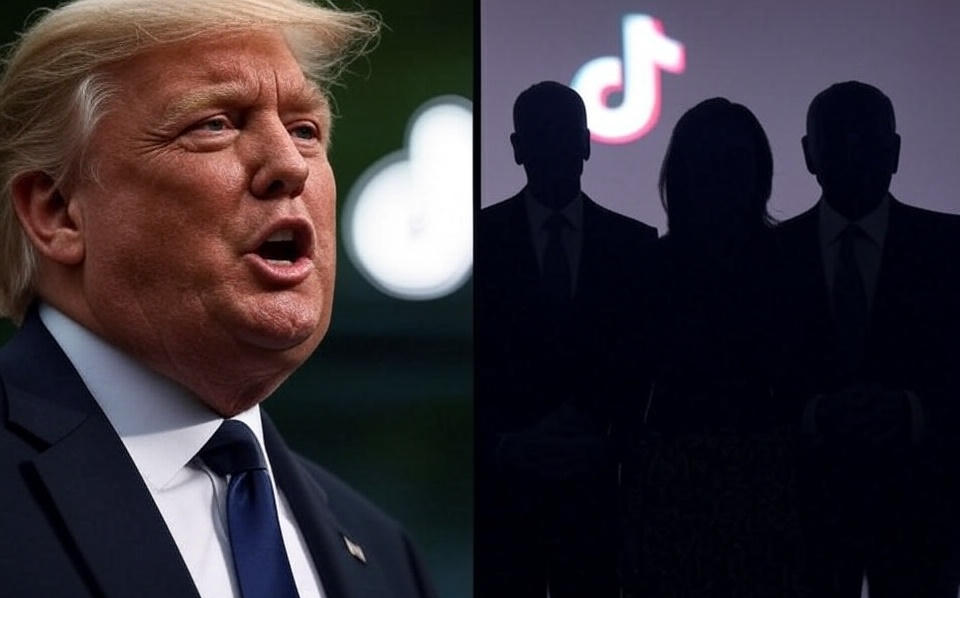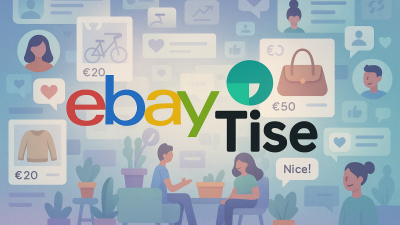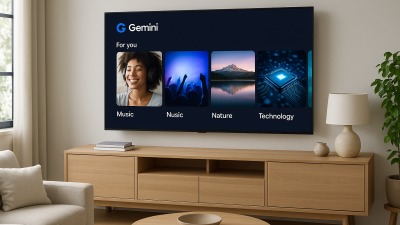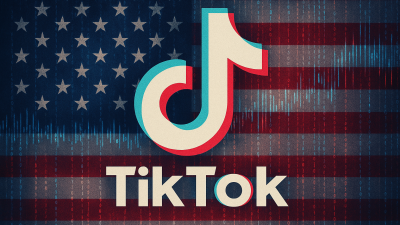Trump Hints Murdoch Family Could Back Investment in TikTok Deal
Few companies in the digital age have captured global attention as swiftly and controversially as TikTok. From its meteoric rise as a platform for short-form video to its scrutiny by regulators worldwide, TikTok embodies both the promise and the peril of globalized technology. Now, the platform once again finds itself at the center of a political and financial storm—this time involving former U.S. President Donald Trump and the powerful Murdoch family.
In a recent remark, Trump suggested that Rupert Murdoch and his son Lachlan, influential figures at the helm of News Corp and Fox Corporation, could play a role in backing a deal to invest in TikTok. The comment quickly sparked speculation: Could the Murdochs really be eyeing a stake in the platform? And what would that mean for the media landscape, politics, and global tech competition?
The potential alignment between Trump and the Murdoch family is about more than business. It underscores the delicate intersection of media power, political influence, and technological rivalry between the U.S. and China. For ordinary citizens, it raises deeper questions: Who should control the platforms that shape how we communicate, create, and consume information? And at what cost to democracy, transparency, and competition?
As we unravel this possibility, the implications stretch far beyond one company or one deal—they speak to how societies navigate ownership, influence, and trust in a digitally dominated era.
TikTok’s Tumultuous Journey in America
TikTok’s American journey has been nothing short of turbulent. Owned by Beijing-based ByteDance, the platform has faced repeated accusations of posing national security risks, with U.S. lawmakers concerned about data privacy, potential foreign surveillance, and algorithmic manipulation.
Trump himself once spearheaded efforts to ban TikTok in 2020, citing threats to American sovereignty. At the time, his administration pushed for a forced sale of TikTok’s U.S. operations, with Microsoft, Oracle, and Walmart circling as potential buyers. That effort fizzled, but the political scrutiny has never really subsided.
Fast forward to today, and TikTok still operates under a cloud of uncertainty. The U.S. government continues to debate how best to regulate or potentially restrict the app, while TikTok insists it has firewalls in place to protect user data. Against this backdrop, the prospect of the Murdoch family investing introduces a new twist: the blending of media mogul influence with one of the world’s most contentious tech platforms.
For users, TikTok represents creativity, opportunity, and community. But for regulators and political leaders, it remains a test case for balancing innovation with national security. That tension frames why any new ownership stakes carry weight well beyond financial terms.
Media Power Meets Tech Ambition
Rupert Murdoch, often described as one of the most influential media figures of the modern era, has built an empire spanning newspapers, television, and digital news. His son Lachlan now leads much of that empire, overseeing assets such as Fox News, The Wall Street Journal, and The Times of London.
Their potential involvement in TikTok signals something profound: a possible expansion from traditional media dominance into the arena of digital platforms that directly shape youth culture and global communication. While Fox and News Corp hold sway in political discourse, TikTok represents the next generation of media power—one where influence is measured not by print subscriptions or TV ratings, but by viral trends and algorithmic reach.
From a strategic perspective, investing in TikTok could allow the Murdochs to hedge against the decline of legacy media and gain foothold in a platform beloved by Gen Z and millennials. It would mark a shift from broadcasting narratives to shaping the very ecosystems where narratives form and spread.
But this prospect also invites scrutiny. Would Murdoch ownership tilt TikTok’s content moderation or algorithmic priorities? Would the platform’s cultural neutrality be at risk of politicization? For many, these questions highlight the delicate balance between private investment and public trust in the digital sphere.
Trump, TikTok, and Electoral Strategy
Trump’s hint about the Murdoch family is not just business chatter—it’s a political signal. The former president’s relationship with the Murdoch empire has been complex. Fox News played a pivotal role in amplifying Trump’s rise, though tensions between Trump and Rupert Murdoch have grown in recent years. Suggesting Murdoch involvement in TikTok may serve as both a public nudge and a political gambit.
There’s also the electoral context. TikTok has emerged as a powerful tool for political messaging, particularly among younger voters. Trump’s own 2020 campaign initially dismissed the platform, but its sheer influence in shaping online discourse is now undeniable. If the Murdochs were to gain influence over TikTok, it could potentially reshape the dynamics of political communication, advertising, and information flows during future elections.
At the same time, Trump’s remarks reflect his broader approach to dealmaking—leveraging public statements to test reactions, shape narratives, and potentially influence negotiations behind the scenes. Whether or not the Murdochs truly intend to pursue a TikTok investment, the very mention of their involvement shifts the conversation and amplifies Trump’s presence in debates about tech regulation and foreign ownership.
Is TikTok an Asset Worth the Risk?
From a purely financial standpoint, TikTok is both highly attractive and deeply risky. The platform boasts over 1 billion monthly active users, making it one of the most valuable social media assets in the world. Its advertising revenue has skyrocketed, with projections placing TikTok’s global ad revenue at over $20 billion by 2025.
For investors like the Murdochs, this presents a tantalizing opportunity to diversify beyond traditional media revenues, which have been under pressure from declining cable subscriptions and shrinking print markets. TikTok’s young, engaged user base also offers demographic reach that legacy platforms can no longer secure.
Yet the risks are equally clear. Regulatory uncertainty looms large. The U.S. government could still force a divestiture, restrict operations, or impose strict oversight, potentially slashing the platform’s value. Moreover, TikTok’s cultural identity—as a space for spontaneous creativity and global exchange—may not align seamlessly with the profit-driven imperatives of traditional media moguls.
For ordinary users, the business calculations may seem distant, but the outcome directly affects their digital experiences. Whether TikTok remains free, expressive, and culturally vibrant depends on who controls the levers of its ownership and governance.
Tech Rivalry and Cultural Power
Any investment in TikTok is not just about money—it’s about geopolitics. At its core, TikTok embodies the intensifying tech rivalry between the U.S. and China. A Murdoch-backed deal, especially one encouraged by Trump, could be interpreted as a push to bring TikTok more firmly under Western influence.
For China, TikTok has been a rare global cultural export, reshaping music, entertainment, and social trends across continents. U.S. ownership stakes could dilute that influence, or at least ensure more oversight by American entities. But this could also provoke pushback from Beijing, complicating trade and diplomatic relations.
The stakes extend to soft power as well. Whoever shapes TikTok’s future will, in many ways, shape how billions of people interact online. It is a reminder that in today’s world, cultural platforms are as strategically important as oil reserves or military assets. They shape perceptions, identities, and collective consciousness.
For citizens worldwide, this is not a distant corporate tug-of-war—it’s about the digital environments where they connect, express, and define their generational culture.
What This Means for Society
At its heart, the possibility of Murdoch involvement in TikTok underscores a broader societal dilemma: who controls the platforms that define modern communication? The story is not just about Trump’s hints or the Murdoch family’s ambitions. It is about the growing concentration of media and tech power in the hands of a few individuals and corporations.
As we consider this possibility, it’s worth reflecting on the human side. For creators, TikTok is a livelihood. For young users, it’s a cultural canvas. For politicians, it’s a battlefield of influence. And for society, it’s a mirror—showing both our appetite for connection and our vulnerability to manipulation.
If figures like the Murdochs were to step in, the balance of power in digital culture could tilt further toward elite control. That could bring stability and investment—but also risks of censorship, bias, or commercialization at the expense of authenticity. For everyday people, the question is simple but urgent: who do we trust to steward the platforms that increasingly shape our lives?
Donald Trump’s hint that Rupert and Lachlan Murdoch might back a TikTok deal is more than a passing remark—it’s a window into the complex interplay of politics, media, business, and society in the digital age. At stake is not just the ownership of a social media app, but the future of cultural power, political communication, and global tech rivalry.
Whether the Murdochs ultimately invest or not, the conversation itself highlights the extraordinary weight TikTok carries in today’s world. It is a platform where billions gather, trends are born, and narratives are shaped. Its fate will influence not just markets but how we, as people, experience the digital commons of the 21st century.
As society watches these developments unfold, one thing is certain: the question of who owns TikTok is inseparable from the question of who shapes our future.
FAQs
1. Why is TikTok considered a national security concern in the U.S.?
Because of its Chinese ownership, lawmakers worry about data privacy, potential surveillance, and algorithmic influence on public opinion.
2. What role does the Murdoch family currently play in global media?
They control major outlets such as Fox News, The Wall Street Journal, and The Times, wielding enormous influence in news and politics.
3. Why would the Murdochs be interested in TikTok?
To diversify into digital platforms, capture younger audiences, and maintain cultural influence as legacy media faces decline.
4. How does Trump factor into this discussion?
Trump has a history with TikTok, having pushed for its ban in 2020. His recent remarks revive debates on ownership and regulation.
5. Could a U.S. investment in TikTok affect U.S.-China relations?
Yes. Such a move could be seen as reducing Chinese control over a cultural export, potentially escalating geopolitical tensions.
6. What does this mean for TikTok users?
Ownership changes could influence platform policies, content moderation, and even the authenticity of its culture.
7. Is TikTok financially valuable despite political risks?
Yes. With over a billion users and projected ad revenues surpassing $20 billion by 2025, TikTok remains highly lucrative.
Want more in-depth analysis on tech, politics, and society? Subscribe to our newsletter for weekly insights that go beyond the headlines.
Note: Logos and brand names are the property of their respective owners. This image is for illustrative purposes only and does not imply endorsement by the mentioned companies.



